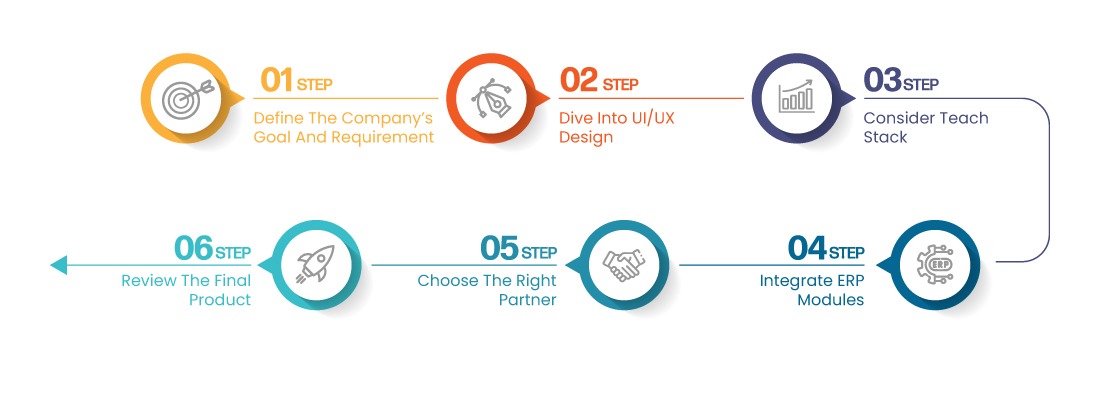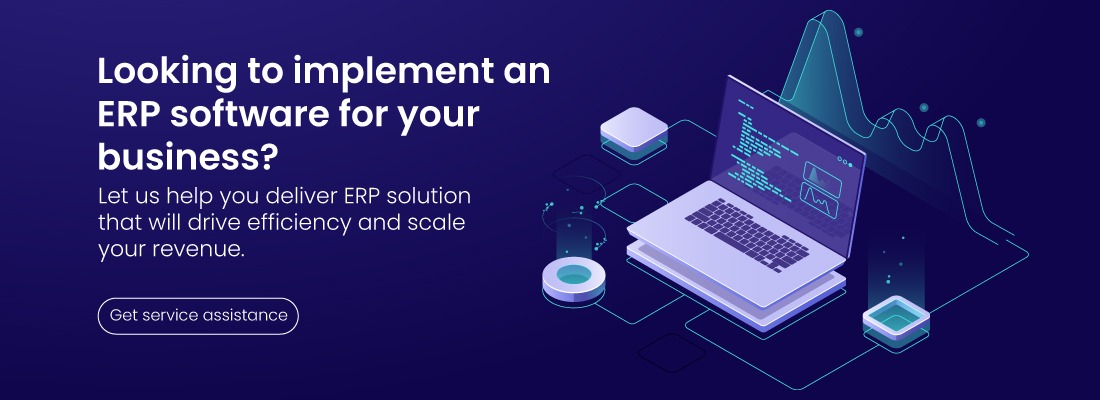Staying competitive in today’s quickly changing business environment calls for more than just a quality product or service; it also calls for effective and streamlined processes.
ERP (Enterprise Resource Planning) systems have become a key component of contemporary business administration, enabling smooth coordination between numerous departments and procedures.
This blog delves into the realm of ERP development, examining its importance, main advantages, development procedure, and how it may support the expansion of your company.
Understanding ERP Development: A Holistic Approach to Business Management
In a business environment where data flows ceaselessly and decisions need to be swift, an ERP system acts as a centralized hub that brings together diverse functions, data, and processes.
ERP development involves the creation, customization, and integration of software modules to streamline and automate key operations within an organization.
This integrated approach to business management enables companies to make informed decisions, optimize resource allocation, and enhance overall productivity.

Key Benefits of ERP Development: Driving Efficiency and Effectiveness Streamlined Operations
ERP systems provide a unified link between various company departments.
Workflows are made easier by the seamless data sharing and collaboration made possible by this connection.
Employees are freed up to concentrate on things that are actually important because to the reduction of redundant work, and departments are all operating more efficiently overall thanks to enhanced communication.
Data-Driven Insights
Consolidating data from numerous sources onto a single platform is a component of ERP development.
Businesses have access to a wealth of insights through this integrated data, enabling them to make wise decisions.
In today’s competitive environment, the capacity to examine trends, recognize patterns, and identify opportunities for development is vital.
This data-driven strategy offers a solid framework for strategic planning and market-change adaptation.
Enhanced Customer Experience
ERPs are essential for improving how companies connect with their consumers.
Businesses may tailor their interactions with each consumer by providing a thorough perspective of their interactions and past purchases.
This level of understanding enables more personalized and responsive client service, which in turn fosters repeat business and customer loyalty.
An enthusiastic supporter of the brand is more likely to be a happy customer.
Resource Optimization
The way resources are managed within a firm has been transformed by ERP systems.
Businesses may optimize their resource allocation with increased visibility into inventory levels, procurement procedures, and supply chain operations.
The capacity to eliminate surplus inventory guarantees that customers’ needs are regularly supplied while also preventing waste and lowering carrying costs.
Furthermore, by spotting chances for bulk purchases or better supplier negotiations, ERP systems support procurement cost optimization.
Improved bottom-line performance and cost reductions are directly impacted by this resource optimization.
The ERP Development Process: From Concept to Implementation
Needs Evaluation:
The ERP journey starts with a thorough examination of the operational environment of the organization.
This entails exploring current processes, locating bottlenecks that impede effectiveness, and establishing long-term goals that the ERP system must meet.
This first stage lays the groundwork for a customized solution that addresses the unique requirements of the organization.
Customization and Integration:
ERP systems go through customization and integration to achieve a seamless fit.
Software modules are painstakingly made by developers to fit specific organizational operations.
Beyond cosmetic adjustments, this modification delves deeply into the operations of each department to streamline workflows and improve overall cohesion.
Testing and quality control:
A crucial phase, these activities verify the ERP system’s reliability. Thorough testing guarantees that the system performs correctly, effectively, and securely in a variety of situations.
Prior to the system being implemented across the entire organization, this phase increases confidence by identifying and resolving any potential problems.
Training and Deployment:
An efficient deployment process and good training are essential for successful ERP adoption.
Employee training gives personnel the knowledge and abilities needed to fully utilise the new system.
To prevent delays and provide a smooth transfer while preserving operational continuity, careful deployment tactics are used.
Continuing Support and Maintenance:
After the first implementation, the journey is sustained by continuing support and maintenance.
ERP systems require ongoing maintenance as business needs change and technology develops.
The ERP system is maintained as a valuable and flexible asset, acting as a cornerstone for long-term growth and success, through routine upgrades, proactive troubleshooting, and modifications.

FAQs
How much time does ERP development usually require?
The length of time it takes to design an ERP system might change depending on how complex the organization’s requirements are and how much customization is needed. It may last for a few months, a year, or longer.
What steps comprise the creation of an ERP system?
Needs analysis, customization, integration, testing, training, deployment, and continuing support and maintenance are some of the crucial processes in the development of an ERP system.
Should an ERP system be customized or can it be utilized as-is?
Off-the-shelf ERP systems serve as a basis, but modification is frequently required to fit the system with the unique procedures and needs of an organization.
In what ways do ERP systems aid in enhancing departmental communication?
ERP systems offer a centralized platform for information interchange, enabling real-time data sharing and cooperation between departments, and improving communication.
How can a company pick the best partner for ERP development?
It’s important to assess an ERP development partner’s knowledge, experience, track record, and capacity to comprehend and meet the particular needs of the organization.
Conclusion
ERP development provides a way for sustainable expansion in addition to optimizing current operations.
ERPs give businesses a competitive edge by streamlining operations, strengthening data-driven decision-making, and improving customer experiences.
This benefit extends to scalability since ERP systems are easily able to handle expansion, new markets, and changing company models.
The development of ERP is a strategic investment that drives companies toward operational excellence and long-term growth, to sum up.
ERPs offer a solid basis upon which businesses may build their success in the dynamic and demanding modern business environment through faster processes, increased insights, and improved resource management.
























